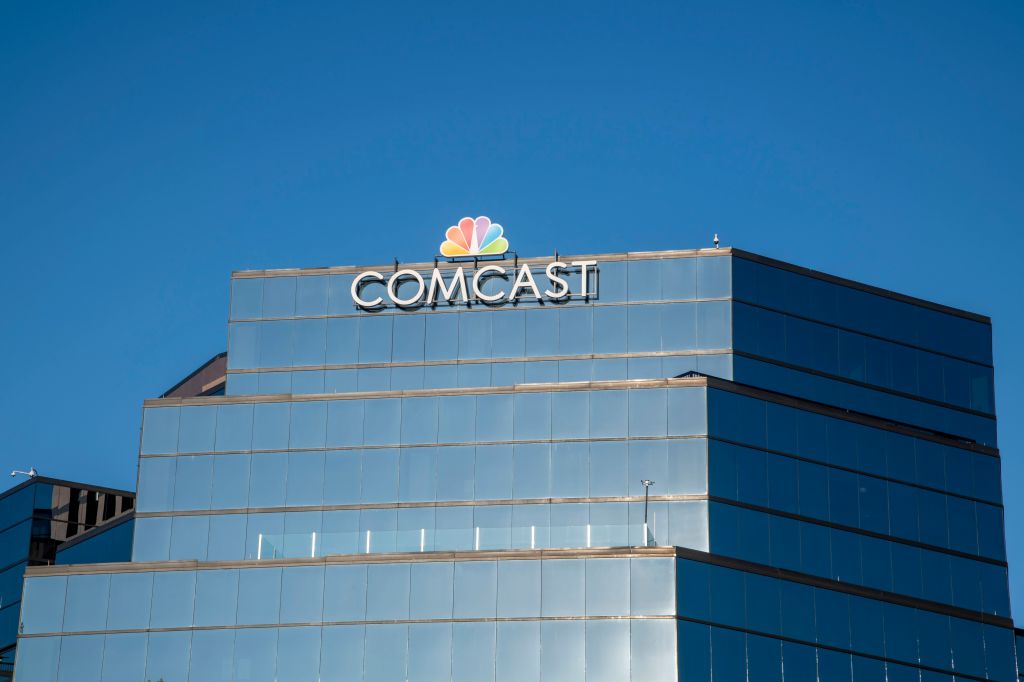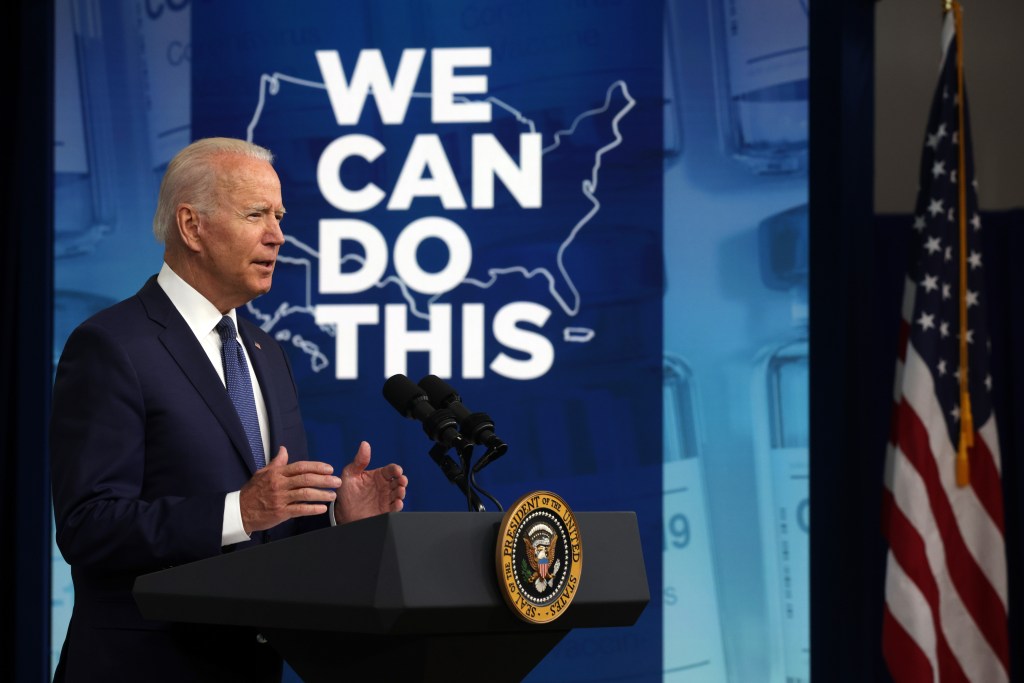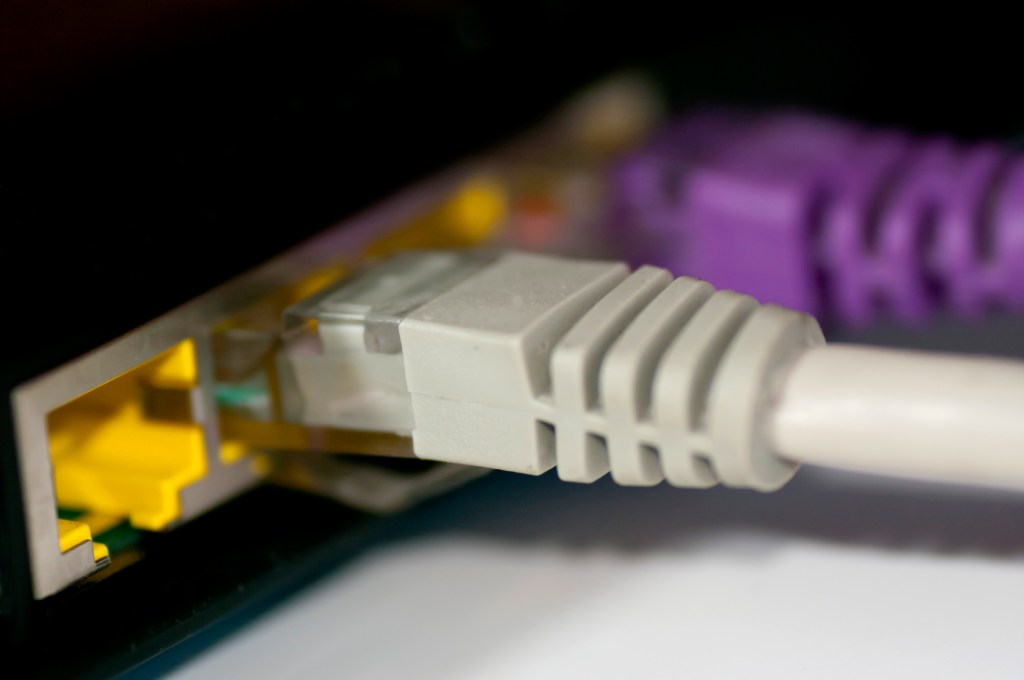ISPs around the world claim the unprecedented bandwidth demands Netflix’s Squid Game is placing on their broadband networks means they should be getting more money. But experts say that’s not how telecom networks work, suggesting that already cash-flush telecom giants are just positioning themselves for an underserved hand out.
The popular South Korean thriller, a not so thinly-veiled critique of late-stage capitalism, tracks a group of indebted people who compete in deadly children’s games for cash. According to Netflix, Squid Game is the most popular show in company history, the number one program in 94 countries, and has been watched by 142 million households.
Videos by VICE
ISPs around the world also claim the show’s popularity is driving a massive surge in bandwidth consumption, and they want their cut.
In South Korea, Internet service provider SK Broadband sued Netflix earlier this month, claiming that between May and September the ISP’s network traffic jumped 24 times to 1.2 trillion bits of data processed every second. This surge is Netflix’s fault, the ISP insists, and Netflix should be held financially responsible.
In the UK, British Telecom executives have been making similar complaints, insisting that Netflix should be forced to help pay for the surge in network traffic caused by the show.
But broadband experts say that’s not how broadband networks actually work.
“It makes no sense for ISPs to cry victim because they provide a popular service, and are expected to provide it,” John Bergmayer, telecom expert at consumer group Public Knowledge told Motherboard. “People subscribe to broadband to do things like stream video, and it’s broadband customers who are requesting all these Squid Game streams. They are not somehow imposed on ISPs by Netflix.”
Internet service providers typically design their network capacity to handle prime-time peak consumer demand, regardless of traffic type. Already paid by businesses and consumers alike, the responsibility of meeting this demand falls on the ISP, not Netflix.
Bergmayer said there’s some instances where ISPs might have legitimate complaints about unfair network burdens (like a struggling ISP in a developing nation with limited resources), but it’s generally not a problem for larger ISPs. Netflix does provide settings that help users on capped broadband connections reduce their overall bandwidth consumption, and also provides ISPs free access to its content delivery network (CDN) to help reduce overall network strain.
Dane Jasper, CEO of independent California ISP Sonic, told Motherboard the narrative of streaming’s impact pushed by bigger ISPs—from their justifications for unpopular broadband caps to their claims that Squid Game poses a dire threat—often aren’t based in reality.
“Data caps in general make little sense,” Jasper told Motherboard. “The individual who is downloading all day long isn’t really a problem, they’re using otherwise idle capacity during slack time. It’s only during the peak hour that anyone’s usage matters.”
Jasper also contested the argument that Squid Game has had a meaningful impact on ISP network performance or bottom lines.
“If it increases peak hour viewing could mean more capacity needs to be deployed,” Jasper said. “But is a particular show actually increasing peak hour viewing time? Aren’t people watching it at all hours? And don’t they still work, eat dinner, etcetera? Unless it changes behavior and shifts people away from offline activities, there won’t be much impact.”
Jasper said this dynamic changes for live streaming events during prime time, as a rush of simultaneous users can place a significant burden on broadband networks and CDNs. But traditional streaming doesn’t pose the same capacity challenges for an ISP.
So why are big ISPs making such claims? Money and political strategy, mostly.
Envious of their revenues, telecom giants for years have complained that companies like Google and Netflix get a “free ride” on their networks and should pay an additional toll for no substantive reason. AT&T’s claim that Google “rides its pipes for free” and should pay an additional surcharge helped spark the U.S. net neutrality debate more than fifteen years ago.
Consumer advocates see such efforts as little more than “double dipping” on the part of telecom giants, who are already paid handsomely for services that routinely underwhelm. Net neutrality rules, discarded in the United States after relentless telecom lobbying, were intended to thwart telecom monopolies from abusing their market power in such a fashion.
Most technology giants, be they Google, Facebook, or Netflix, not only pay for bandwidth, they spend billions of dollars on cloud capacity, transit, undersea cables, content delivery networks, and in Google’s case, even their own residential ISP. Consumers also already pay an arm and leg for bandwidth, especially in countries (like the U.S.) where broadband competition is limited.
Nobody gets a “free ride” from the heavily-monopolized telecom industry, but the argument has become a common talking point among telecom executives worldwide all sharing the same goal: offloading network construction and operation costs to somebody else.
So as Netflix’s Squid Game grabbed headlines, larger ISPs saw an opportunity to revisit the dated and misleading argument. In the UK this week, British Telecom not only complained to The Guardian that Netflix was an unfair freeloader harming the company’s network, but that the UK should weaken or eliminate net neutrality consumer protections.
“When the rules were created 25 years ago I don’t think anyone would have envisioned four or five companies would be driving 80% of the traffic on the world’s internet,” BT Chief Executive Marc Allera insisted. “They aren’t making a contribution to the services they are being carried on; that doesn’t feel right.”
The argument, often funneled through industry-allied regulators and think tankers, often varies slightly but the underlying message remains the same: companies like Netflix are nasty freeloaders, and must pay telecom giants additional money for no coherent reason. While U.S. ISPs haven’t leveraged Squid Game’s popularity in this fight yet, there’s still time.
“US ISPs have made identical complaints before, so I don’t see what would stop them from doing it again,” Bergmayer said. “This is why I want net neutrality rules, not net neutrality ‘pledges’ from ISPs.”




